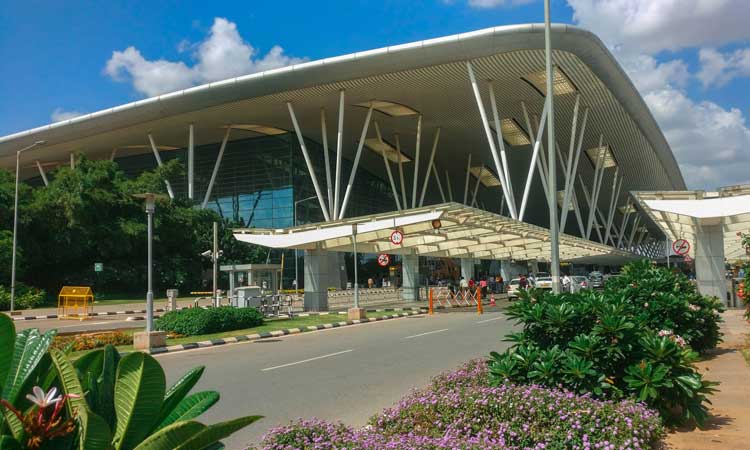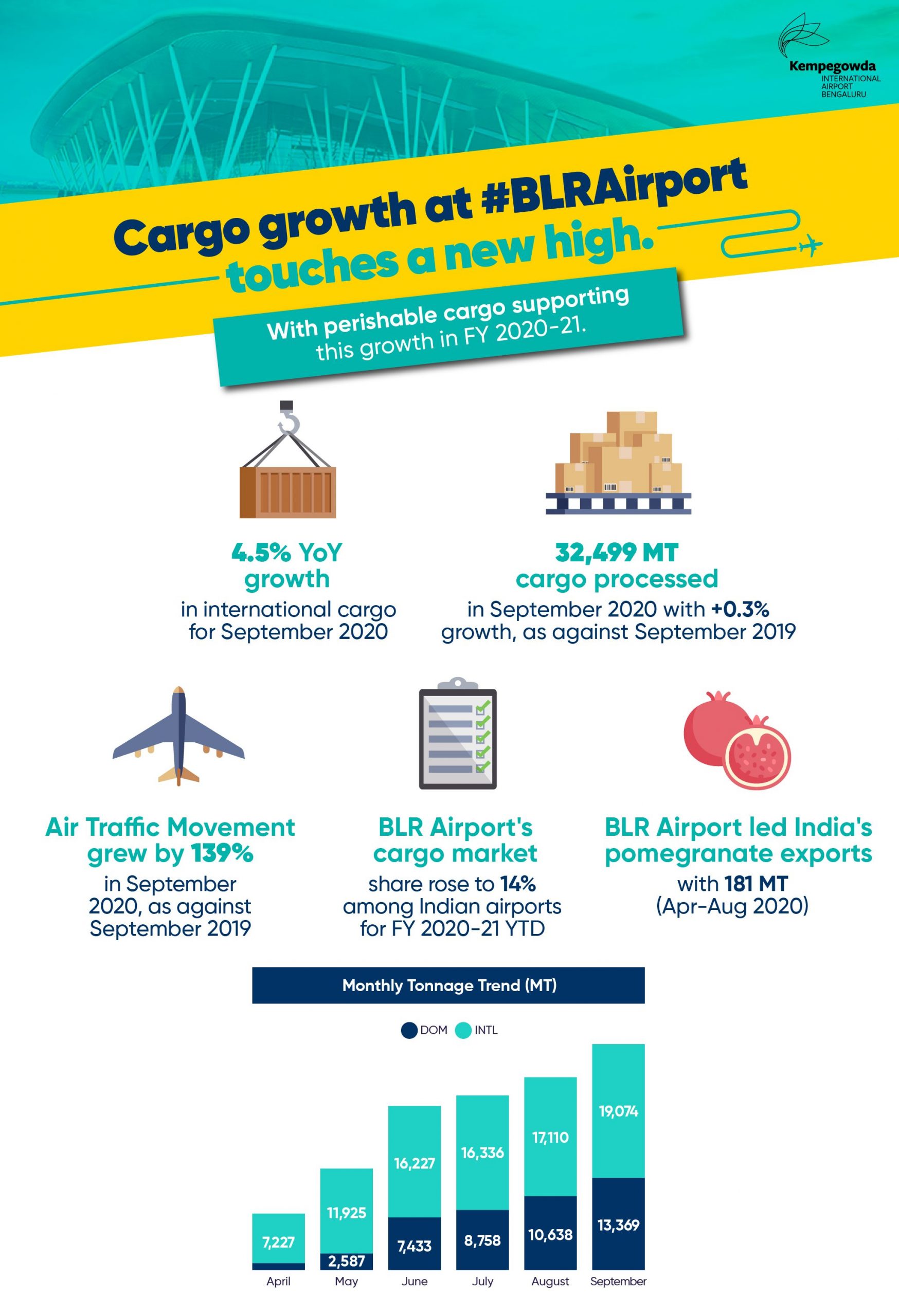BLR Airport experiences growth in cargo volumes following COVID-19 slump
- Like
- Digg
- Del
- Tumblr
- VKontakte
- Buffer
- Love This
- Odnoklassniki
- Meneame
- Blogger
- Amazon
- Yahoo Mail
- Gmail
- AOL
- Newsvine
- HackerNews
- Evernote
- MySpace
- Mail.ru
- Viadeo
- Line
- Comments
- Yummly
- SMS
- Viber
- Telegram
- Subscribe
- Skype
- Facebook Messenger
- Kakao
- LiveJournal
- Yammer
- Edgar
- Fintel
- Mix
- Instapaper
- Copy Link
Posted: 21 October 2020 | International Airport Review | No comments yet
BLR Airport has become the first metro airport in India to record growth in freight in September 2020, compared to the same period in 2019.


Cargo volumes at Kempegowda International Airport, Bengaluru (BLR) are gathering momentum, with international cargo leading the recovery, following a prolonged slump due to the COVID-19 pandemic.
This resurgence in cargo movement has powered BLR Airport to become the first metro airport in India to record growth in freight in September 2020, compared to the same period in 2019.
Improved connectivity and an increase in Passenger to Cargo (P2C) aircraft, combined with proactive measures by Bangalore International Airport Limited (BIAL) – the operator of BLR Airport – to enable seamless processing, have pushed cargo volumes into positive territory.


Credit: Kempegowda International Airport
In the first first two quarters of FY2020-21, between April and September 2020, BLR Airport cargo terminals processed 131,603 metric tonnes of freight. The cargo processed in September was 32,449 metric tonnes, representing a growth of 0.3 per cent against the same period in 2019. September 2020 witnessed a 4.5 per cent growth in international cargo, of which export cargo grew by 7.6 per cent. Meanwhile, domestic cargo is showing a slower recovery at 5.2 per cent lower than the same period in 2019.
Perishable cargo has been one of the major growth drivers, with BLR Airport having processed 17,212 metric tonnes during this period. It processed 180,745kg of pomegranate from April to August 2020, emerging as the leading airport for pomegranate exports from India. The other segments driving growth are readymade garments, engineering goods, pharma and medical supplies.
The introduction of its road feeder service – LOGI Connect – to link cities like Tirupur, Coimbatore, Ambur, Salem, Erode, Hyderabad and Chennai further augmented growth, powering BLR Airport’s all-India market share of air cargo from 11 per cent to 14 per cent.
Before the pandemic, around 60 per cent of domestic and international freight was being carried in the belly space of passenger aircraft and the remainder in freighters. With the reduction in passenger flights due to travel restrictions, several airlines – both domestic and international – converted their aircraft, enabling the availability of a larger amount of cargo capacity. As a result, BLR Airport saw the growth of cargo aircraft movements by 139 per cent against 2019.


















